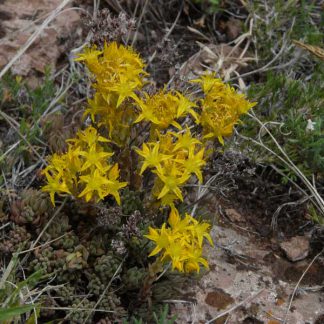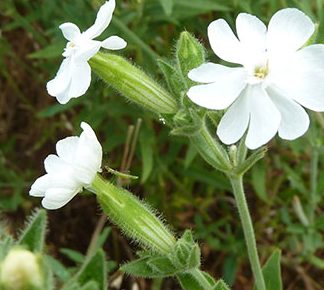late summer
Showing 109–120 of 134 results
-

Salix glauca / grayleaf willow
- very low-growing shrub at high altitude (alpine/subalpine)
- rounded to lance-shaped leaves; smooth below
- large-ish catkin inflorescences
-

Sambucus nigra / common elderberry
- shrub or small tree blooming in late spring
- leaves opposite
- pinnately compound with up to 9 leaflets with serrated edges
- flowers are white, 5-petaled, in flat-topped clusters of clusters
- "berries" are red or dark blue/black in August; often drooping when mature
-

Scrophularia lanceolate / lanceleaf figwort
- teeny, snapdragon-like flowers
- flowers urn-shaped, mostly yellow, with red or green at the tips
- flowers look like they aren't yet opened
- flowers on elongated panicle at the top of a tall-ish plant
- opposite leaves like stinging nettle without the stingers
- up to 5 feet tall in full sun/partial shade
-

Scutellaria galericulata / marsh skullcap
- riparian zones and wetlands
- blue, trumpet shaped (legume) flowers; usually in pairs on same side of a stem
- flowers not at the top of the stems
- square stems, widely spaced opposite leaves; adjacent pairs at right angles
-

Sedum lanceolatum / lanceleaf stonecrop
- bright yellow, star-shaped flowers (possible red tinge)
- fleshy/succulent, small leaves (green, yellow or red)
- open rocky outcrops, gravelly sites
- drought tolerant
-

Senecio triangularis / arrowleaf ragwort
- leafy stems with arrow-shaped, coarse-toothed leaves
- often in large patches on moist soil
- clusters of yellow flower heads, each with 8-ish untidy ray florets
- numerous green involucral bracts, sometimes with black tips
- largest leaves occur mid-stem
-

Silene latifolia / white campion
- white, 5-petaled flowers with distinctive inflated calyx (bladder)
- flowers in clusters atop stems
- whole plant densely hairy
- widespread on alkaline soils (e.g. the Valley)
-

Sisymbrium altissimum / tumble mustard
- inflorescence a raceme with yellow, teeny flowers
- long, thin seed pods (siliques)
- blooms throughout the spring and summer
- shoots look like a bunch of sticks glued together
- dries and breaks off, then tumbles
-

Solanum physalifolium / ground cherry nightshade
- flowers look like potato or tomato flowers
- small white, 5 recurved petals
- clump of yellow stamens protrude from flower
- triangular leaves with wedge-shaped bases
- usually sprawling on ground
-

Solidago canadensis / goldenrod
- large sprays of yellow flowers in late summer and fall
- often tall and in large colonies
- lance-shaped, toothed leaves
- mostly (but not always) in disturbed areas
-

Solidago missouriensis / Missouri goldenrod
- perennial herb, up to 40" tall
- inflorescence is a branching panicle with many (≥200) yellow flower heads
- involucres are ¼ long with 3 or 4 layers of narrow, pointed, hairless, yellow-green bracts
- leaves are thin and lanceolate, upright and rigid with prominent midribs
- upper leaves have pronounced but small teeth
-

Solidago multiradiata / alpine goldenrod
- the only (?) goldenrod at alpine altitudes
- clusters of 5-100 small, yellow composite flowers with a dozen-ish rays and 3 doz disc florets
- medium green lance/spoon shaped leaves, bigger at base of the plants; toothed/hairy edges
Showing 109–120 of 134 results